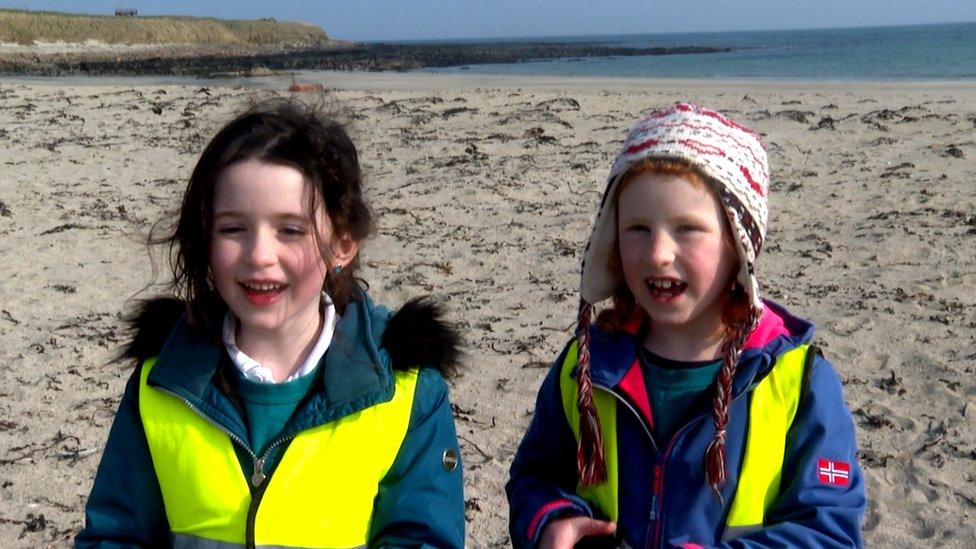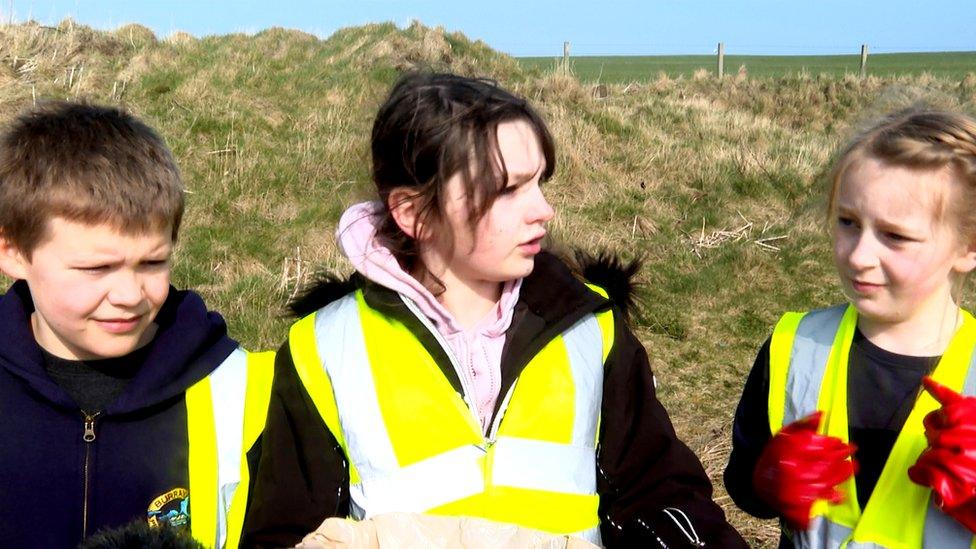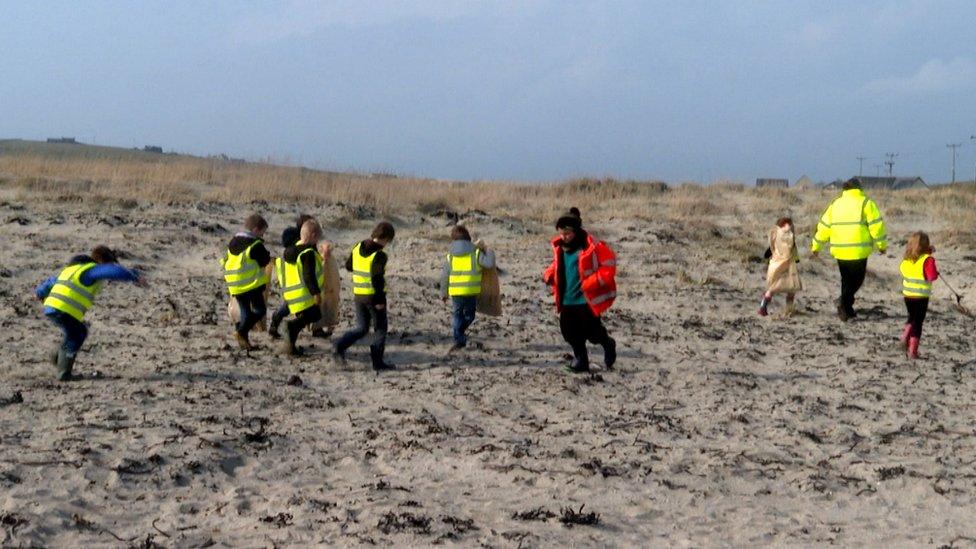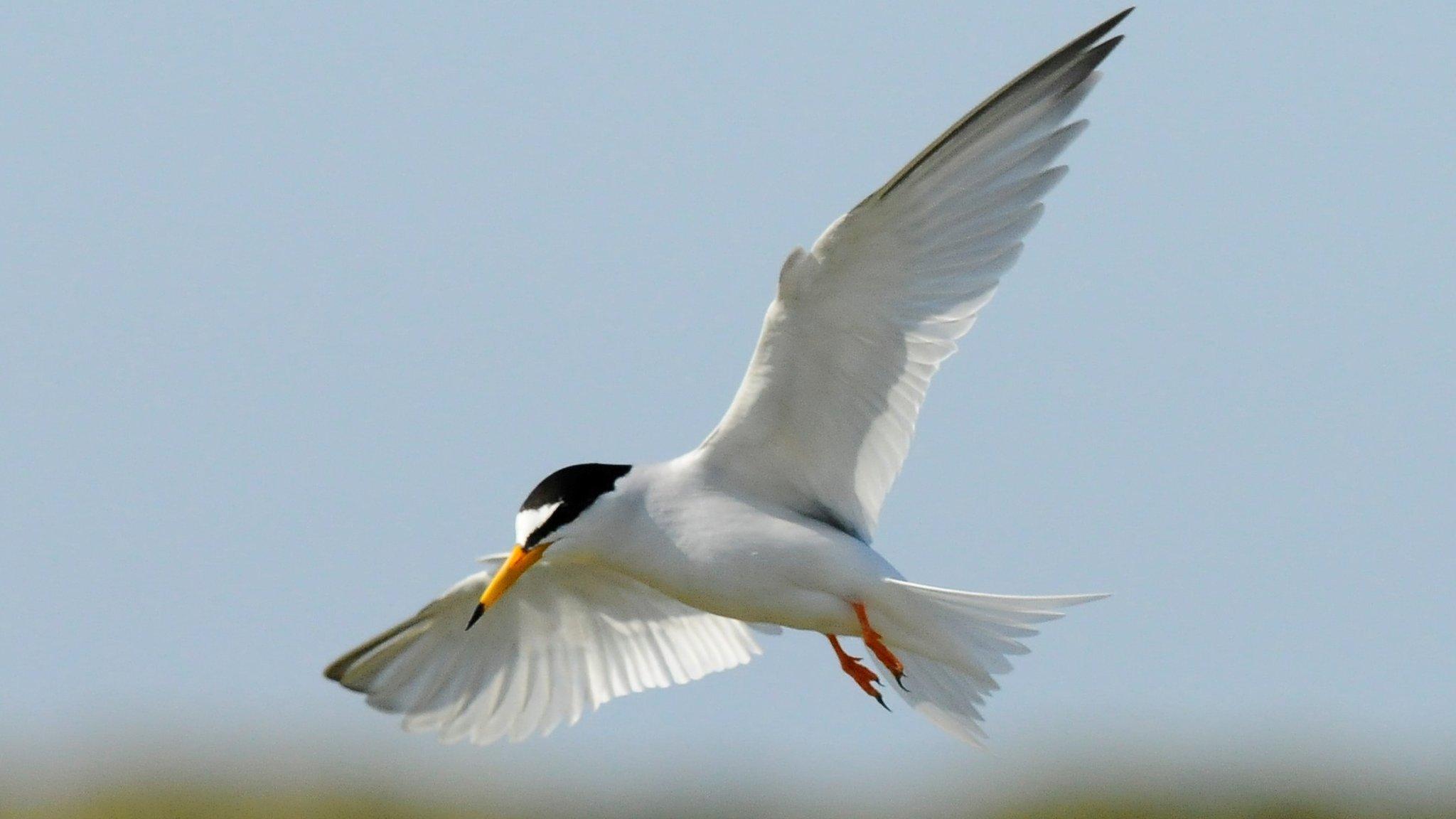Rare seabirds thrive thanks to Orkney school children
- Published
Orkney gets ready for nesting season of rare birds
A population of rare seabirds is thriving on a Scottish island after a group of school pupils took them to heart and made it their mission to protect them.
Orkney has the UK's most northerly population of little terns, which migrate thousands of miles every year to breed.
But the nesting site they've chosen is right between a busy road and a popular beach on the Fourth Barrier in South Ronaldsay.
In previous years the RSPB have fenced off the area where the terns nest, but now they are trying something different.
They are hoping the local children will be able to educate the local community about how to keep the birds safe.

Children from The Hope and Burray Primary schools are taking the care of the little terns seriously
Pupils at Burray and The Hope primary schools are making posters marking out the site, putting down tern decoys to encourage the terns to breed and cleaning the beach to ready it for the birds.
RSPB Orkney's education officer Holly Peek says: "The little terns had absolutely no success here before the kids got involved.
"They're just so enthusiastic. They tell their parents, their grandparents, and that message just spreads throughout the whole community.
"A lot of people say the kids are the future but they are the now as well. They are actively helping the little terns right now and that's fantastic."
The little tern is the UK's smallest tern. Vulnerable nesting sites and a decline in Europe have made it an "amber list" species.
It's thought that there are only 2,000 pairs of little terns left in Britain, with the birds migrating from West Africa every year to nest in the UK in early April.

Diana and her friends have been cleaning the beach and telling their family members about how to protect the seabirds
One of the biggest threats to the birds is litter, which they can mistake for food and either eat themselves or give to their young, which poisons the chicks.
The pupils know how important it is to have a clean beach for the birds.
Diana, in P5-7 class at Burray School, said: "We do a beach clean most years but in recent years Covid meant we hadn't been able to."
"It's really important for me because they're our local wildlife and if we didn't protect them we wouldn't be doing our job as citizens of the island."
Her friends in P1-2 class agree. Emily said: "They're really rare and they come here because they think they're going to be safe with their babies, so we have to look after them and make sure people don't bother them."

The RSPB are letting children take the lead in preparing for and protecting the little terns
Little terns are very sensitive to disturbance and with eggs the same colour as the sand, they can be easily destroyed by unsuspecting walkers.
RSPB Orkney's communications and events officer Stewart Bain said: "In previous years, we've had a fenced-off area but the little terns don't always help us by nesting in the area that's fenced off.
"Since we started doing beach cleans with the pupils, the number of chicks we've seen on site has increased every year."
He added: "This time we're hoping that their messaging to the community will be enough to protect the birds without the need for the usual roped off area, so the little terns can just go about their business and get some peace that they'll need to breed."
- Published24 May 2016
